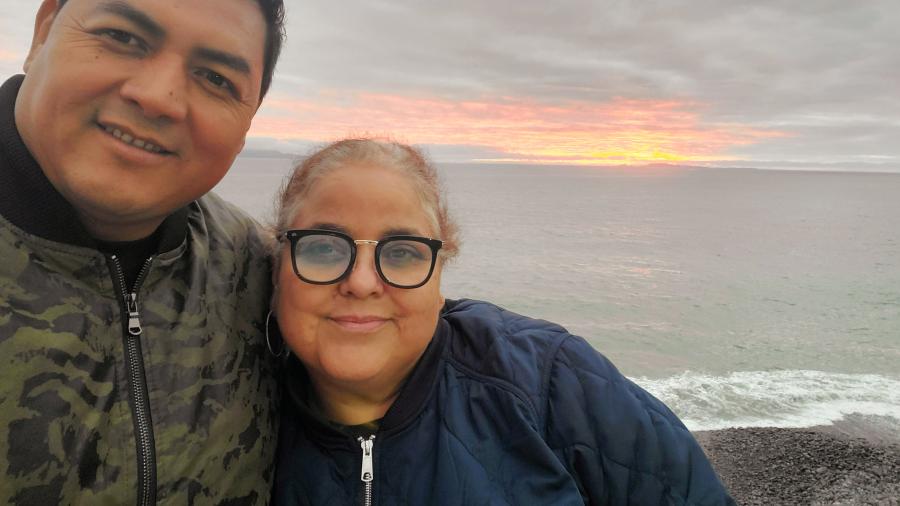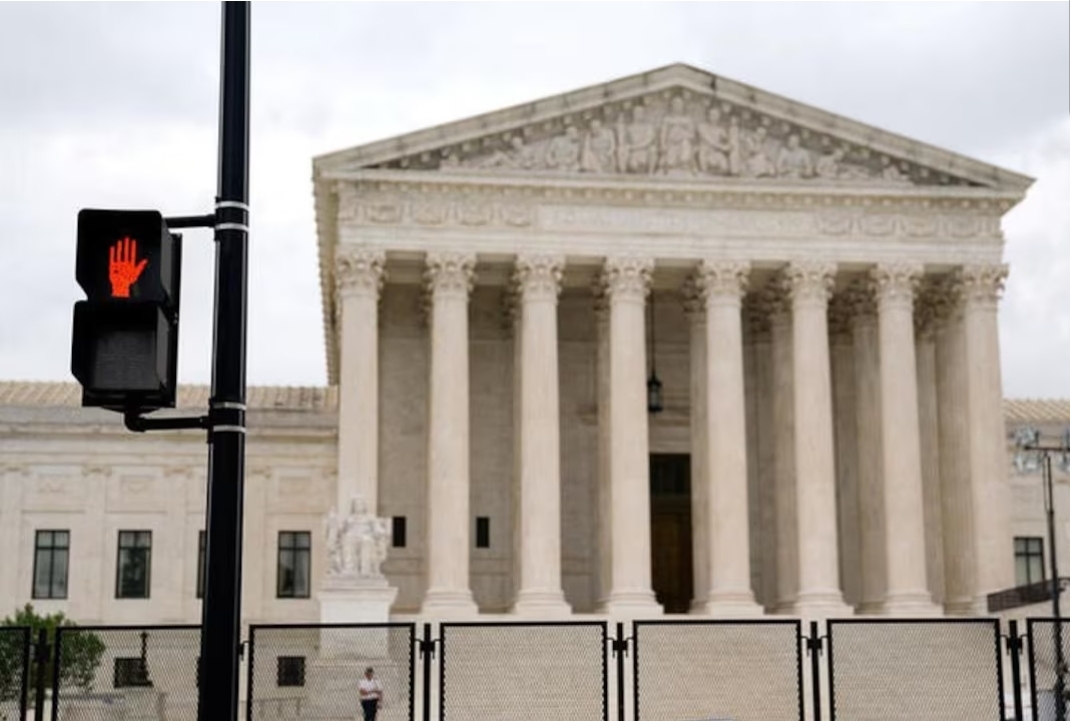Toheeb Omotayo
The U.S. Supreme Court ruled on Friday that when the government forbids a citizen’s non-citizen spouse from entering the nation without cause, the citizen’s constitutional rights are not violated.
The court in a 6-3 decision, opens new tab and stated that Sandra Munoz, a U.S. citizen and civil rights lawyer, cannot challenge the U.S. Department of State’s denial of her El Salvadoran husband’s visa application after the agency waited three years to explain that it suspected him of being a gang member.

On March 28, 2024, the American Bar Association – ABA – filed an amicus brief with the U.S. Supreme Court, asking the court to rule that the U.S. government must provide a factual basis beyond citing a catch-all federal statute to satisfy due process requirements when a consular officer denies a visa application of a U.S. citizen’s noncitizen spouse.
Munoz and her husband, to whom she married in 2010 and bears a child, have been separated since 2015, according to court filings.
It all started in 2015 when the U.S. State Department denied Luis an immigrant visa. Sandra Muñoz, an American Citizen has been separated from her Salvadoran husband, Luis Asencio Cordero, for nearly a decade.
The National Immigrant Justice Center furthered a co-counseling with Eric Lee of the Diamante Law Group and Erwin Chemerinsky, dean of the University of California, Berkeley Law School to represent Sandra and Luis in the case, which is currently pending before the Supreme Court.
About The Case
Sandra Muñoz is a U.S. citizen from California who met Luis Asencio-Cordero in 2008 and married him two years later. In 2013, Sandra initiated the immigrant visa process by petitioning for Luis to become a lawful permanent resident. The couple established that their marriage was bona fide. The Department of Homeland Security (DHS) then conducted a background check on Luis to determine that he posed no risk to national security and found that Sandra would suffer extreme hardship if separated from him or forced to move to El Salvador. The next step was a consular interview in El Salvador. The couple anticipated a short stay in El Salvador, but for Luis, that stay is now approaching 10 years, a report by the National Immigrant Justice Center, has revealed.
“At the interview, the consular officer refused to issue Luis a visa. The consulate provided no explanation for the denial except a citation to a statute that says a person is inadmissible if the officer has reason to believe they will commit “any” crime at some unknown point in the future. Sandra and Luis tried to refute the finding, but without further information about why the consulate had declared Luis inadmissible, that task was impossible. Sandra and Luis guessed that the decision might have been based on various tattoos that Luis has, so they submitted an affidavit from a gang expert who reviewed the tattoos and determined they did not indicate gang affiliation, it added.
“Later, in litigation over the denial, the consulate said that the decision was “based on” a criminal review, an interview with Luis, and his tattoos. But as to the first in this list, Luis has no criminal record, and he has consistently denied any gang affiliation. It is therefore unclear whether his visa was denied because of his tattoos, because of bias, or because of a mistake in unreliable intergovernmental data sharing systems that might have erroneously tied him to a criminal record in his home country.
“Instead of providing Sandra and Luis information that they might use to refute the inadmissibility finding, the State Department has taken the position that visa records behind the decision are “confidential” and cannot be released to the applicant or even members of Congress. According to the Government, “all” visa decisions implicate national security, so they cannot turn over the reasoning in this particular case or in others like it.
However, visa denials are not reviewable in court unless the government violates an applicant’s constitutional rights in the process.
The Supreme Court on Friday rejected Munoz’s claim that the delay in explaining the denial violated her due process rights by interfering with her fundamental right to marry.
Her claim “involves more than marriage and more than spousal cohabitation — it includes the right to have her noncitizen husband enter (and remain in) the United States,” Justice Amy Coney Barrett wrote for the court.
The ruling reverses a 2022 decision by the San Francisco-based 9th U.S. Circuit Court of Appeals that revived Munoz’s lawsuit against the State Department.
Lawyers for Munoz and the U.S. Department of Justice did not immediately respond to requests for comment.
The Immigration Reform Law Institute, a conservative group that filed a brief backing the State Department, praised the ruling.
“To hold for this couple would let those Americans who choose to marry dangerous aliens force their choice on the rest of us,” Dale Wilcox, the group’s executive director and general counsel, said in a statement.
Munoz sued the State Department in 2017 after the agency declined to reconsider its earlier denial of her husband’s visa, and before it explained its determination. Munoz’s husband, who has no criminal record and denied any gang affiliation, had traveled to El Salvador to apply for a visa.
A federal judge in Los Angeles ruled in 2021 that the State Department was not obligated to notify Munoz of its reasons for denying the application. The 9th Circuit in 2022 reversed, saying that Munoz could not effectively challenge the decision without being informed of its factual basis, which violated her due process rights.
But the Supreme Court on Friday said Munoz’s constitutional right to marry did not equate to a right to have her husband live with her in the United States.

